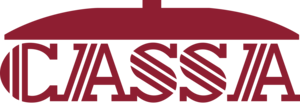To make the education system more equitable for Muslim students and staff, the Equity in Education project aims to empower Muslim high school students and their parents with advocacy skills. Naima Raza, the Equity in Education Project’s former manager states “The reason why this project is so important is that it focuses on grassroots change- it recognizes students and parents; they are people who need to organize and mobilize in order to advocate for a better system.” By participating in this project, Muslim community members can express their concerns about educational equity and barriers to education that impact Muslims.
Muslim youth have been engaged in volunteer training, campaigns, and forums for the past two years by project managers and coordinators. The Students Commission of Canada is the main lead on this project. They have been working with the youth and parents to hear about their experiences dealing with Islamophobia in school. By learning from their experience they have been working toward specific policy changes within school boards and provincial governments. The participants were asked, for example, “Do school boards do enough to combat Islamophobia? How has this project helped you gain access to leadership opportunities? How has it helped you gain access to educational opportunities?”
According to their research, many school administrators were unaware of Islamic practices and refused to accommodate students. For instance, they did not understand why Ramadan, Eid, and Jumma prayers are important to Muslims. Traditionally, Muslim students have been stereotyped by teachers and administrators as aggressive, whereas women have been stereotyped as submissive and meek. They believe that what needs to be done is a need for culturally relevant resources within schools.
The Equity in Education project is a year-to-year project. During its first year, they did three training sessions. As part of the initial cohort of student and parent volunteers, actions were planned around the harmony moment. Volunteers also participated in anti-racism and anti-oppression workshops by Urban Lines and Race Relations and solidarity workshops by CASSA. Further, they organized regional forms for Toronto, York, Peel, and Durham school boards to discuss racial equality issues with community members, and held a Muslim community forum tailored to the Muslim community’s needs. In their second year, they worked closely with the Peel district school board in implementing islamophobia policies; with their second cohort, of more than 40 members, students, and parents. The project’s third-year goal is to expand its work with the Toronto district school board (TDSB).
In their research so far, they have found a lack of cultural competence in school staff; this is due to the lack of representation of Muslim admins in schools. Often, guidance counselors are too busy to understand Muslim students’ struggles or what exactly they are looking for when they need help. Lack of racialized staff and teachers with knowledge of Islamaphobia are two factors that are perpetrating discrimination. The fact that some of these stereotypes and prejudices can be perpetuated by staff through microaggressions and assumptions is alarming.
For more updates on the Equity in Education project, please subscribe to our newsletter above.

